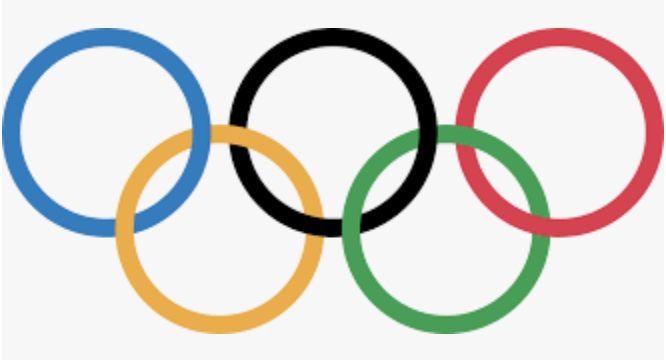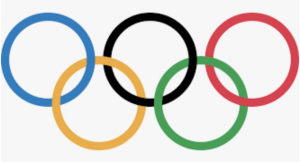Olympics Themed Social Emotional Learning Activities

Who isn’t mesmerized by the athleticism, leadership and character of the Olympic athletes? Young children picture themselves on these mats, fields and courts, so don’t miss the opportunity to use the Olympics to create social skills learning activities this summer.
Join the millions (billions?) of parents who are focusing on helping kids to re-engage with their peers after almost two years of distance learning.
Social Skills – and Gross Motor – Activities
When we stop to think about what skills are involved in playing games and participating in sports, we realize that there are many Social Emotional Learning skills that impact a child’s success. Passing a soccer ball involves physically kicking the ball… and making eye contact with a teammate. We need self-regulation and control to display good sportsmanship and we use analytical and abstract skills to play to play by the rules.
 Tips for Incorporating Social Skills While Watching the Olympics
Tips for Incorporating Social Skills While Watching the Olympics
The best way to incorporate social emotional learning activities – and gross motor skills – is to apply these skills to real-life contexts.
While watching the Olympics, look for examples of these behaviors:
- Model appropriate behavior – Did you see an athlete congratulate another on a win or good performance? Ask your child, “How do you think he feels right now? Do you think this was easy or hard for him?”
- “Out loud thinking” or “internal thinking”? – Did the athlete say out loud what he must have been thinking at the time, or did he keep his thoughts quiet? This is a good way to bring up the importance of self-regulation. Could the athlete have thought, “I am really sad about losing, but I am going to take a deep breath.”?
- Praise – What did one athlete exactly say to other as a compliment. Try to read their lips. What can you learn from the athlete that can be used to encourage positive interactions?
- Read the Room – What does the energy feel like in track and field before a race? Are the athletes anxious, happy, excited, nervous?
- Social Spy – Can you detect tension or joy? How is it handled? Is it something your child could display too?
These are just a few ways to bridge the gap for students returning to class. This summer should focus on fun activities, social education. If our children are not ready, and they can’t vocalize what is wrong, it will be much harder to learn reading and math.
We may have taken some things for granted before COVID, but the experience has also shown us the resiliency our kids have developed. I see changes in children since they have been around their peers this summer. Now we have a newfound appreciation for school and being together.
Deeper Dive:
